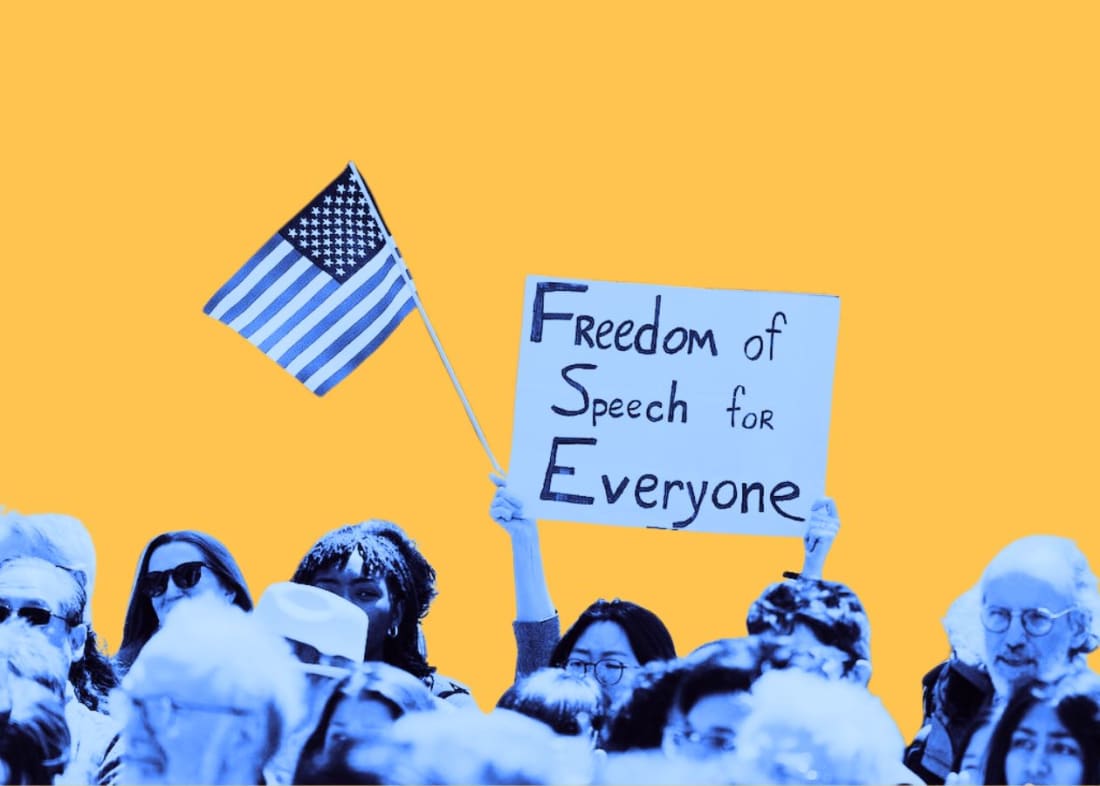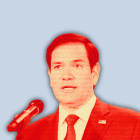|
Jay Nordlinger is a senior resident fellow at the Renew Democracy Initiative and a contributor at The Next Move.
Early in 2020 (not long before the pandemic), I traveled to the University of Chicago Law School, to sit down with Geoffrey R. Stone. He is a professor at the law school and one of its former deans. He also did a stint as provost of the university at large. He is best known, nationwide, as the guiding spirit behind the “Chicago Principles.”
These are principles governing free speech on campus—certainly the University of Chicago’s campus but more than a hundred others as well.
One of those campuses is that of Purdue University, where Mitch Daniels was president from 2013 to 2022. He is a distinguished conservative, of the Reagan stripe. He told me that he “xeroxed” the Chicago Principles as soon as he saw them.
Professor Stone is a man of the Left—a “lion of the Left,” as Daniels described him—yet he is admired by many conservatives for his principled stance on free speech. (Stone was also a good friend of his onetime U of C colleague Antonin Scalia. They took part in a regular poker game.)
When I sat down with Stone, that morning in 2020, I asked whether he found it odd to be admired and praised by conservatives. He said he did. His worry was that conservatives were free-speech champions of convenience, wanting protection for themselves in left-wing environments.
I asked whether we could stipulate that people, in general, were more interested in free speech, and other rights, for themselves than for other people—particularly their political opponents. Yes, we could stipulate that, he said.
You know who’s all for rights? Minorities. Political or other minorities, in whatever situation they find themselves. You know who’s less keen on rights? Majorities, who are going to be comfortable regardless.
I grew up in a university town of a decidedly leftward bent. When I worked at The Little Professor, a bookstore, the manager would not put out certain conservative books and magazines. A friend of mine dubbed the store “The Little Suppressor.”
I went to the university in that town. There were very, very few conservatives on campus—at least open ones. There were plenty of closeted conservatives, I guessed.
Sometimes, I would hazard a conservative opinion or two in class. (I was reading National Review, Commentary, and other racy magazines.) Afterward, people would scurry up to me, look around, and whisper, “I agree with you, and I think you get short shrift.” Then they would scurry off.
I even bestowed a nickname on them: “scurriers.”
More from The Next Move:
William Safire, the famed conservative columnist, once quipped, “I have to go to the corner newsstand to buy a copy of Hustler magazine, just to have something respectable to hide my National Review in.” I once quoted this to a professor of mine—a left-winger, but a woman in whom one could confide, whatever one’s politics.
She sympathized with me, indeed empathized: When she was in grad school, she said, she and others had to hide left-wing magazines, to avoid censure and scorn. I could hardly imagine such an environment—but she told me it was so.
Like other conservatives, I could tell lots of war stories, from campus and elsewhere. Maybe I could mention just one.
In 2015, I traveled to Brown University, to report on an underground forum there. Students had set up this forum in order to have a free exchange of ideas—the kind of exchange that was difficult, or impossible, above ground. They were now ready to have that forum known, which is why I was there, with my reporter’s pen.
For years and years, I have talked with conservative professors and students who have to lie low, or mind their p’s and q’s, on Left-dominated campuses. You know what I have found in recent years? There are conservative professors and students who have to lie low, or mind their p’s and q’s, on Right-dominated campuses that have become Trumpified (in a word).
This is a problem, or a fact, in a variety of institutions.
Lately, the federal government has been interested in late-night talk shows. The president is the most interested of all, attuned to what the hosts say about him. The chairman of the Federal Communications Commission gained instant infamy when he said, “We can do this the easy way or the hard way.”
He was threatening broadcasters, in mafia argot.
Some Republicans choked on this. There is a muscle memory, one hopes, that says, “We don’t do this. Not in our country.”
For many years, I have written about human rights. I can tell you this, with certainty: Relatively few people are for human rights across the board. They might be for them in Cuba, for example, but not in Saudi Arabia. Or vice versa.
I have found the same with free speech. People want free speech for themselves and their friends and their allies, obviously—but we human beings are pretty good at finding reasons to curb or stifle others.
Liberalism, it has been observed, is contra naturam. (I speak of classical liberalism, or “the open society,” the free society.) Under liberalism, might does not make right. Majorities are not allowed to lord it over minorities.
Does this “come natural”?
Listen to José Ortega y Gasset, writing in The Revolt of the Masses:
Liberalism—it is well to recall this today—is the supreme form of generosity. It is the right which the majority concedes to minorities and hence it is the noblest cry that has ever resounded on this planet. It announces the determination to share existence with the enemy; more than that, with an enemy that is weak. It was incredible that the human species should have arrived at so noble an attitude, so paradoxical, so refined, so acrobatic, so anti-natural. Hence, it is not to be wondered at that this same humanity should soon appear eager to get rid of it. It is a discipline too difficult and complex to take firm root on earth.
Tend it. Tend the garden of liberty. This is an imperative, now and always.
More from The Next Move:
The arrest of a comedian in the UK highlights the fragility of an informal democratic tradition. Goodwill is not a guardrail. A constitution is.



